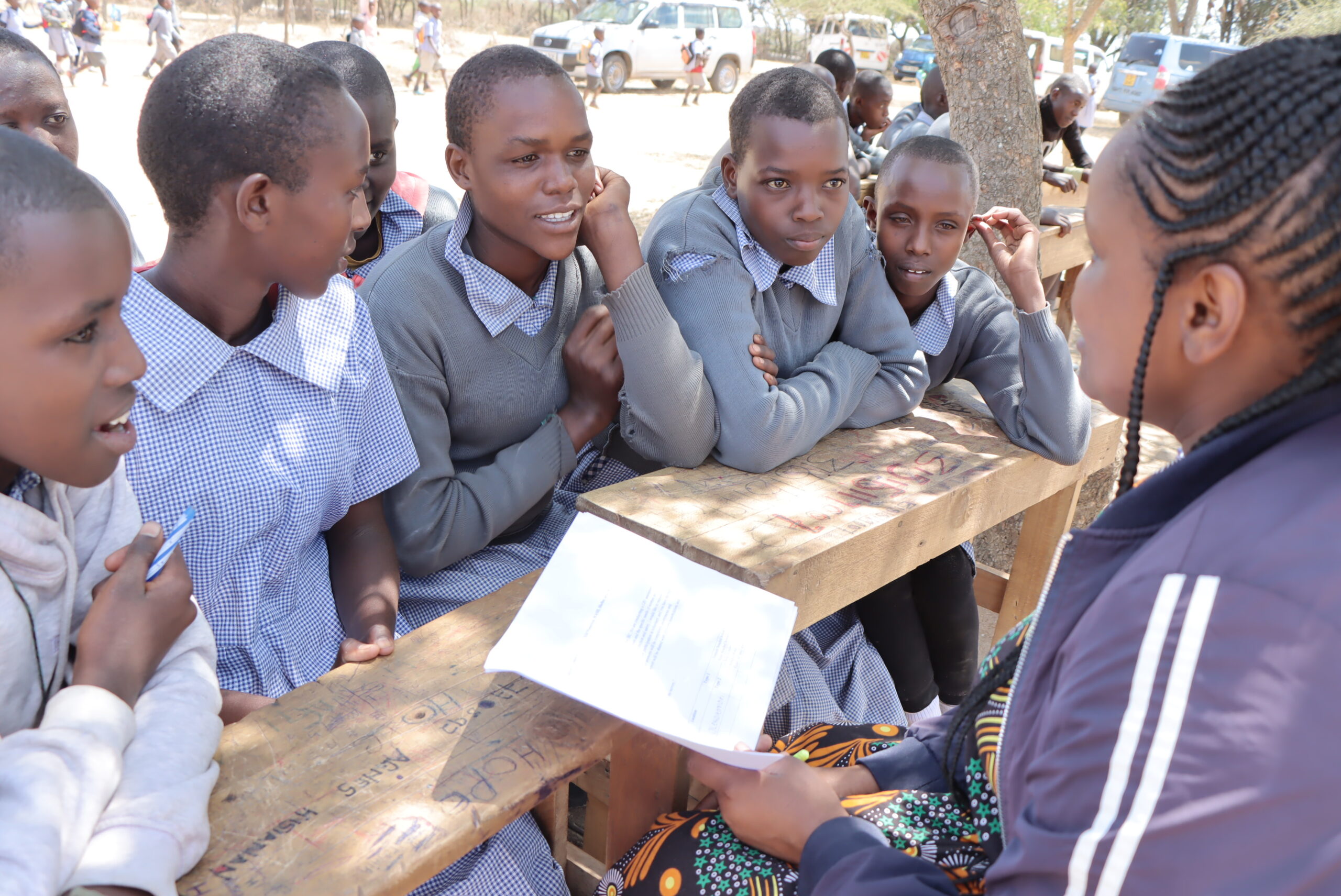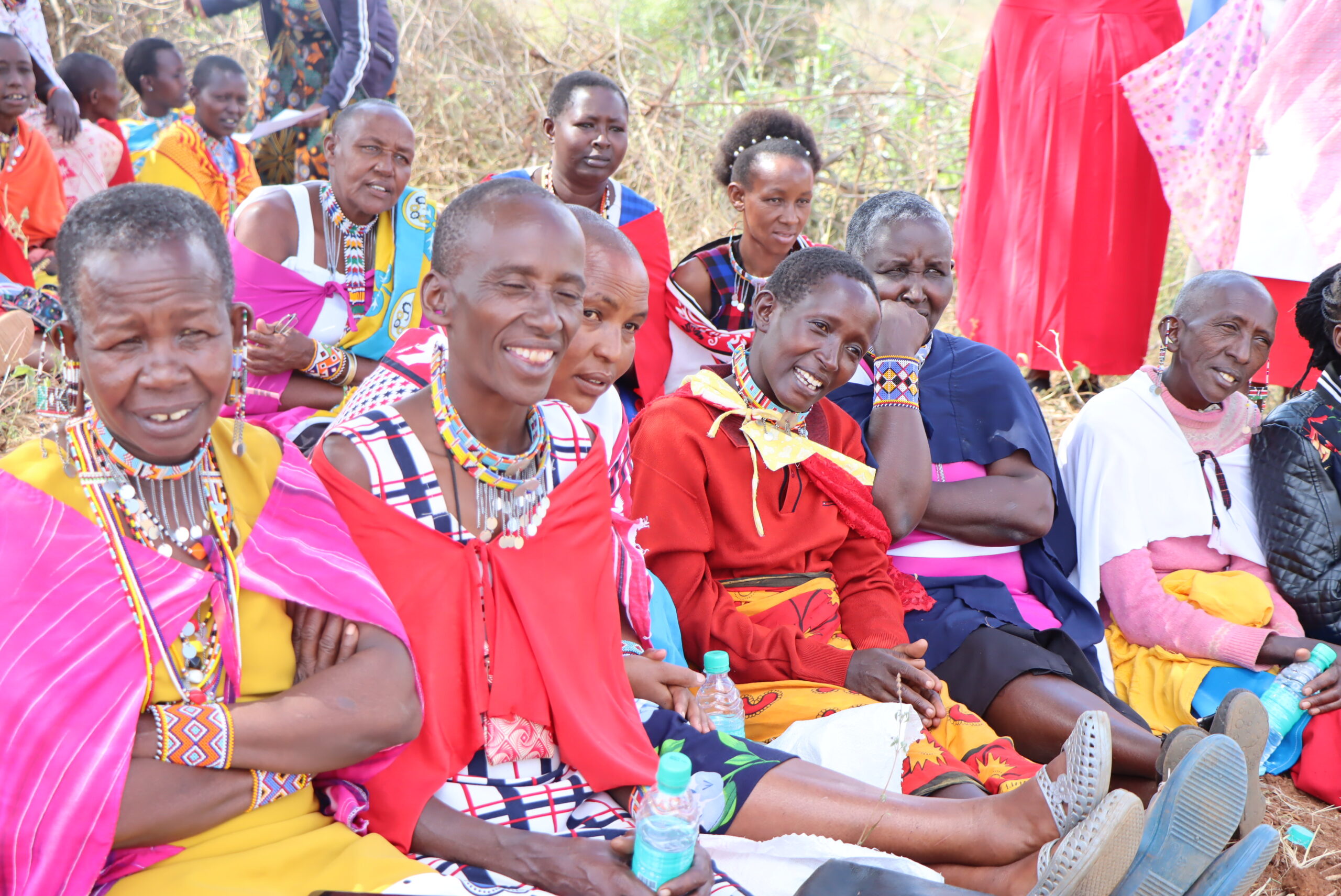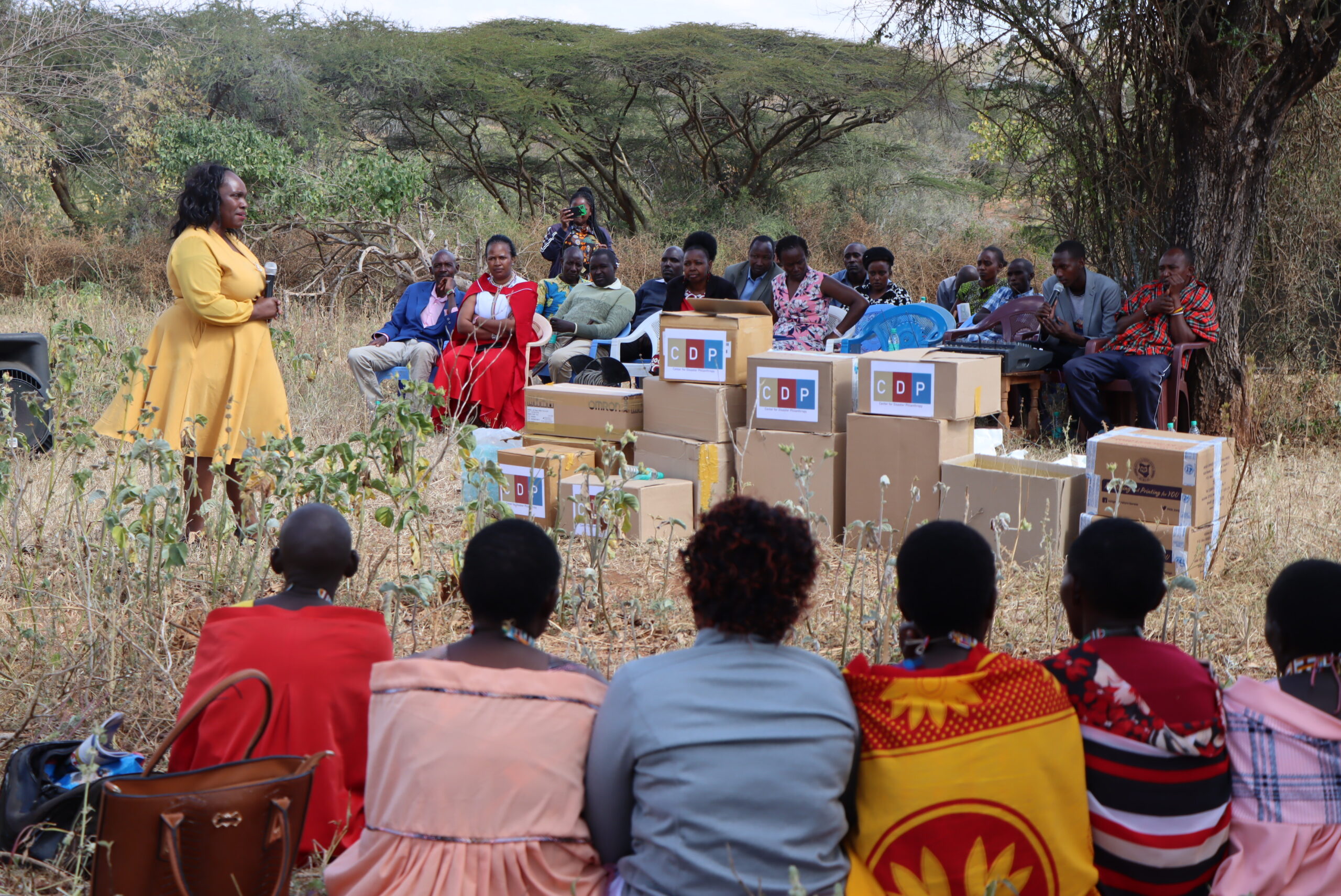Supporting women and girls in drought-affected areas

The scorching sun beats down on 13-year-old Leah and her 11-year-old sister as they trek more than 10 kilometers to a church water project to fetch water for their family. The nearby rivers and streams have long dried up. The prolonged drought has wiped out vast areas of vegetation as many households face hunger, starvation and the loss of their only remaining livelihoods.
Although visibly exhausted, teenage girls like Leah and her sister cannot dare give up. Along the treacherous terrain, they face many dangers, including attacks from men. This is the situation across the vast Kajiado County, where disasters exacerbated by climate change continue to cause prolonged drought, food insecurity and hunger crises.
Leah is one of hundreds of girls and women that the Forum for Women in Development, Democracy and Justice (FODDAJ) has helped. In Kenya, a Center for Disaster Philanthropy grant to FODDAJ helps fund efforts to support women and girls and end gender-based violence.
Leah learned about FODDAJ’s work by attending a public sensitization on gender-based violence risk prevention and reporting procedures. She saved the hotline number and used it to contact FODDAJ to intervene in her case of child marriage.
“After listening to your sensitization message, I decided to fight for myself and my two sisters, who are now married off. I am 13 years and pregnant, my sister is 11, and the other one is 15.” – Leah
After Leah called FODDAJ’s hotline and came to their offices, she received counseling and health and shelter services. The team also helped Leah report her case to the police and provided her with food and clothing.
The crisis
Climate shocks, such as periodic severe drought, hunger crises and floods in Kenya, compound the humanitarian crisis in the country, including the displacement of communities, leading to food insecurity and negative coping strategies for the affected populations.
The crisis disproportionately impacts women and girls. Research by the International Rescue Committee among displaced populations in Kenya indicates that 1 in 5 women experience sexual violence. Adolescent girls are the first casualties. There is an increase in child marriages, female genital mutilation and trafficking adopted by households as coping mechanisms to deal with the social and economic realities they face. There is a stigma associated with seeking help.
Women helping women
In 2023, CDP awarded a grant to FODDAJ to provide training and increase public awareness for 5,200 community members to help address the alarming rates of early forced child marriage, female genital mutilation and human trafficking, which has increased drastically due to food insecurity caused by drought and the ongoing hunger crisis.
Over the first year of the two-year grant, FODDAJ implemented a program focusing on disaster- and hunger-induced violence against women. FODDAJ ensured women had a strong role in guiding the program by beginning its work with community consultations, in which three-quarters of participants were women, and creating a selection committee responsible for informing and developing gender-sensitive criteria for selecting project beneficiaries.
The committee, with a membership of 60% women, selected the households to receive risk prevention emergency information for survivors of rape, child marriages, female genital mutilation, emergency dignity kits and food supplies. This enabled women, girls, boys and men to meaningfully participate in localized humanitarian actions.
FODDAJ also strengthened partnerships with local actors to help with recovery and life-saving interventions, such as referral services, a 24/7 helpline, and advocacy for support from the government and bilateral donors. These partnerships were critical to strengthening local commitment to engaging and empowering women and girls’ voices and decision-making in emergencies.

Supporting women
The program carried out activities to ensure women are aware of and can exercise their rights. FODDAJ provided training to 30 gender champions in gender-based violence rescue, recovery and integration in crisis, referral to facilities and services, and collective advocacy and community mobilization. After the training, the gender champions received support for community education outreaches across three administrative wards of Magadi, Matapato and Rombo of Kajiado. The gender champions conducted house visits, peer-to-peer education sessions, and group discussions on gender violence, health, psychosocial needs, mental health and economic risks.
To increase public support for promoting rights and ending violence against women and girls in crisis-affected communities, FODDAJ held four community dialogues spanning three villages (Lelurjat, Entashat and Olenarau) hardest hit by child marriages, FGM and forced labor targeted at adolescent girls from disaster-affected communities.
Due to the drought and hunger crisis, male children were often allowed to continue their education while girls were married off and had to work to support the family’s recovery. The community outreach provided education that emphasized supporting and educating girls and women. The educational content focused on ending child marriages, the importance of education for girls, ending intimate partner violence and ending violence against female-headed households. The sessions also covered family planning and reproductive health and building community-based referrals that connect households to clinics and hotlines.
FODDAJ worked with churches, provincial administration and authorities to address violence against women and girls at the leadership level, encouraging local leaders to be gender champions in addressing entrenched social norms and behaviors to end child marriage.
Since the activities largely occurred in villages where the hunger crisis was worsening, FODDAJ integrated activities with emergency response by providing food aid assistance and hygiene kits to the most vulnerable households (women-headed and persons with disabilities).

The results
The project supported 2,300 community members and reached approximately 300 households across three districts. FODDAJ empowered women to know and exercise their rights and make informed decisions and ensured they knew about available health services and where to report violence.
CDP is proud to support FODDAJ’s efforts to reduce risks to women and girls in drought-affected communities and empower women to advocate for themselves and others. This grant highlights the impacts women and girls face from the hunger crisis and the importance of addressing problems holistically to build more resilient communities.
Story by Ruja Entcheva.